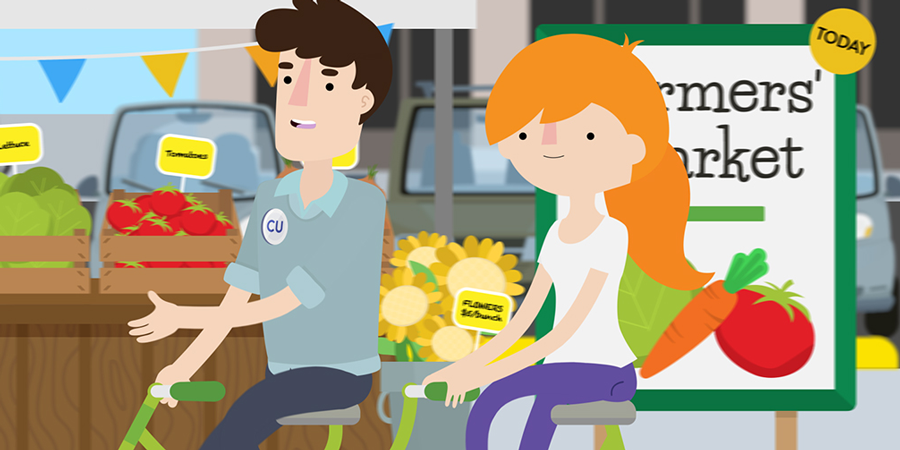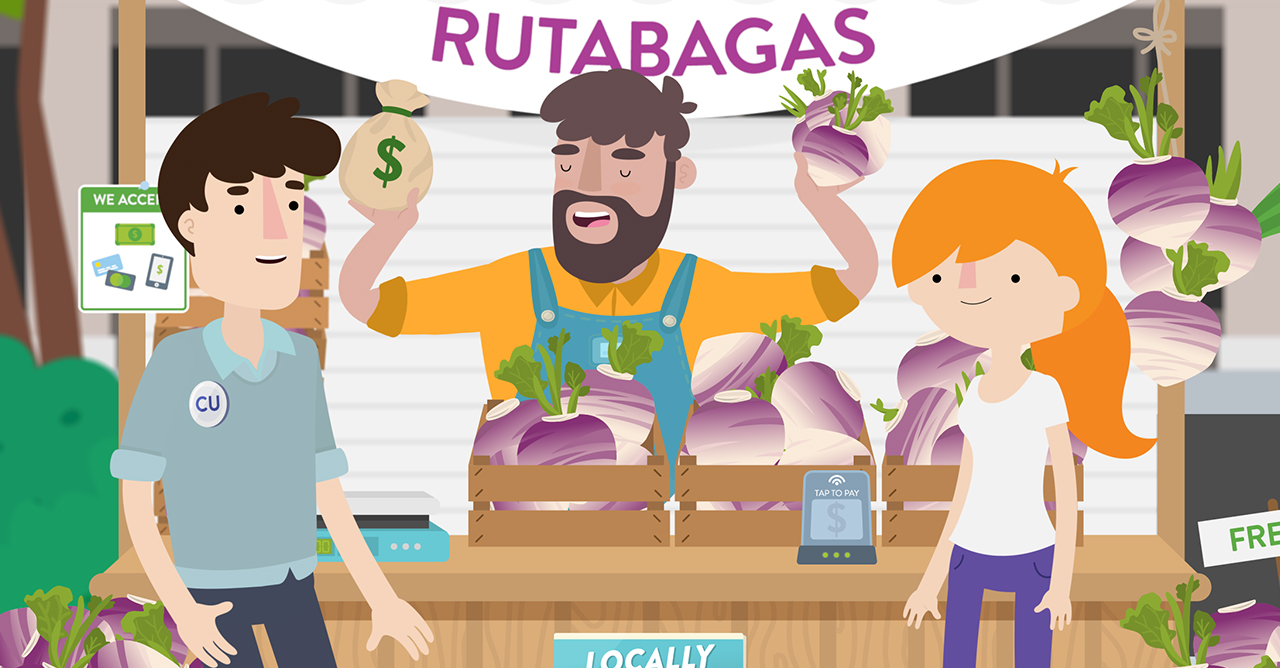
6 money lessons your kids can learn at the farmers’ market
Your local farmers’ market provides more than yummy food and one-of-a-kind crafts. It’s also a perfect place to give your kids hands-on budgeting experience.
And with farmers’ markets on the rise, it’s easier than ever to find one near you.
Source: Number of markets in the USDA Farmers Market Directory, according to the Farmers Market Coalition
Getting your kids involved with their money—and yours—can help them become financially savvy long before they leave the nest.
There’s a misconception that kids can be too young to understand. But they’re watching you, and perception is everything.
Here are six budgeting skills your kids can practice at your local farmers’ market:
|1| Learn about your farmers’ market budget
Tell your kids how much you plan to spend at the market. You can ask them to help you stick to that dollar amount while you shop.
Paying with cash there offers kids a tangible way to experience budgeting and shopping basics. Once the money is gone, it’s gone! Depending on the age and maturity of your kids, you might put them in charge of carrying your spending cash at the market.
Dive deeper into your budget with these resources >
|2| Create a shopping list
Yes, it’s easier to make your shopping list on your own. But involving your kids in the planning offers them a behind-the-scenes look at a budget being put into action.
Plus, when kids help plan food purchases, they tend to enjoy the snacks and meals a little more. It gives them ownership in the meal-planning process!
|3| Shop for the best deal at the farmers’ market
While walking around the market together, take time to talk about and compare prices. Which items fit into your budget, and which ones don’t? How many of each food can you buy to stay within your budget?
Show your kids what to look for when selecting the produce, too. Explain why you picked one item over another.
The little lessons do add up.
|4| Identify needs versus wants
Like any shopping experience, you’ll likely come across tempting items not included on your list. Talk to your kids about whether these are needs or wants.
Depending on what’s available at the market that day, you might not always find everything on your list anyway. Crunch the numbers with your kids. Would the new grocery item fit into your budget if you swap it with another on your list?
Maybe there isn’t room in your budget this week, but you could plan to buy it during your next farmers’ market run.
|5| Handle the transactions
Let your kids pay for your purchases with the cash you brought. It gives them an opportunity to put their change-counting skills to work.
It also lets them practice another valuable lesson: Having polite conversations with others in their community.
|6| Save any leftover money
If you don’t spend all of your budgeted money, talk about the importance of saving it. Maybe that money gets added to a You-Name-It Savings account for a family-focused goal, such as a vacation or group activity.
Knowing that any leftover money will go toward a goal everyone will enjoy can encourage your kids to try to stay under budget.




